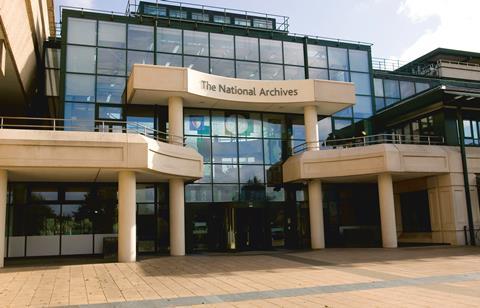As exclusively revealed by the Gazette last month the Ministry of Justice has turned to the National Archives to set up the first comprehensive and free online repository of court judgments from England and Wales. The new site will go live next April, when the ministry’s current contract with the British and Irish Legal Information Institute (BAILII) expires, the ministry said.
As a first step, JR decisions, European case law, commercial judgments and many more cases of legal significance from the High Court, Upper Tier Tribunal, and the Court of Appeal will be migrated across from BAILII.The aim is for the new site, which is expected to resemble the National Archives’ legislation.gov.uk to replace multiple sources of court judgments, 'saving time and money for lawyers, judges, academics, journalists, students and members of the public', the ministry said.

Announcing the project, the lord chancellor, Robert Buckland QC MP, said: 'Ensuring court judgments are easily accessible is central to the rule of law and the principle of open justice.' He paid tribute to the 20-year-old BAILII site, saying 'I am extremely grateful for the work they have done over the years to make judgments available to the public. This new service will ensure they remain accessible to anyone who needs them, under safe and secure arrangements with The National Archives.'
In a statement, BAILII welcomed the announcement, while saying it will 'remain the most comprehensive single source of free legal information not just for England & Wales but also for Scotland, Northern Ireland, the Republic of Ireland and other important common law jurisdictions.' However the new arrangement means the loss of £50,000 a year in income, roughtly a quarter of BAILII’s annual spending. The MoJ will not have to foot the bill for the new site as it falls under the statutory obligations set out under the Public Records Act.
Under the new arrangement, judgments will be available in a form suitable for machine-reading. National Archives will convert all the judgments it receives into Legal Document Mark-up language, a system of tagging key pieces of data for machine retrieval. Details of licensing arrangements have yet to be announced but National Archives is subject to the Re-use of Public Sector Information Regulations 2015, which require public bodies to permit re-use of data and prohibit exclusive deals.
Pressure on the government to formalise online access to court judgments has grown steadily over the past few years. The Supreme Court’s 2017 judgment in Unison stressed the need for ‘unimpeded access’ to the courts. In 2019 the Legal Education Foundation’s Digital Justice report called for a standard approach to open publication. Dr Natalie Byrom, the foundation’s director of research, said of today’s announcement: 'This is a critical step towards achieving a more transparent, open and equitable justice system, that supports access to justice and data-driven reform.'
The Law Society also welcomed the announcement. 'The law can often be seen as complicated and inaccessible for the public, but this move should be able to provide some clarity for the public around the justice system and the rule of law, and why it matters to them and their lives,' a spokesperson said.






























8 Readers' comments